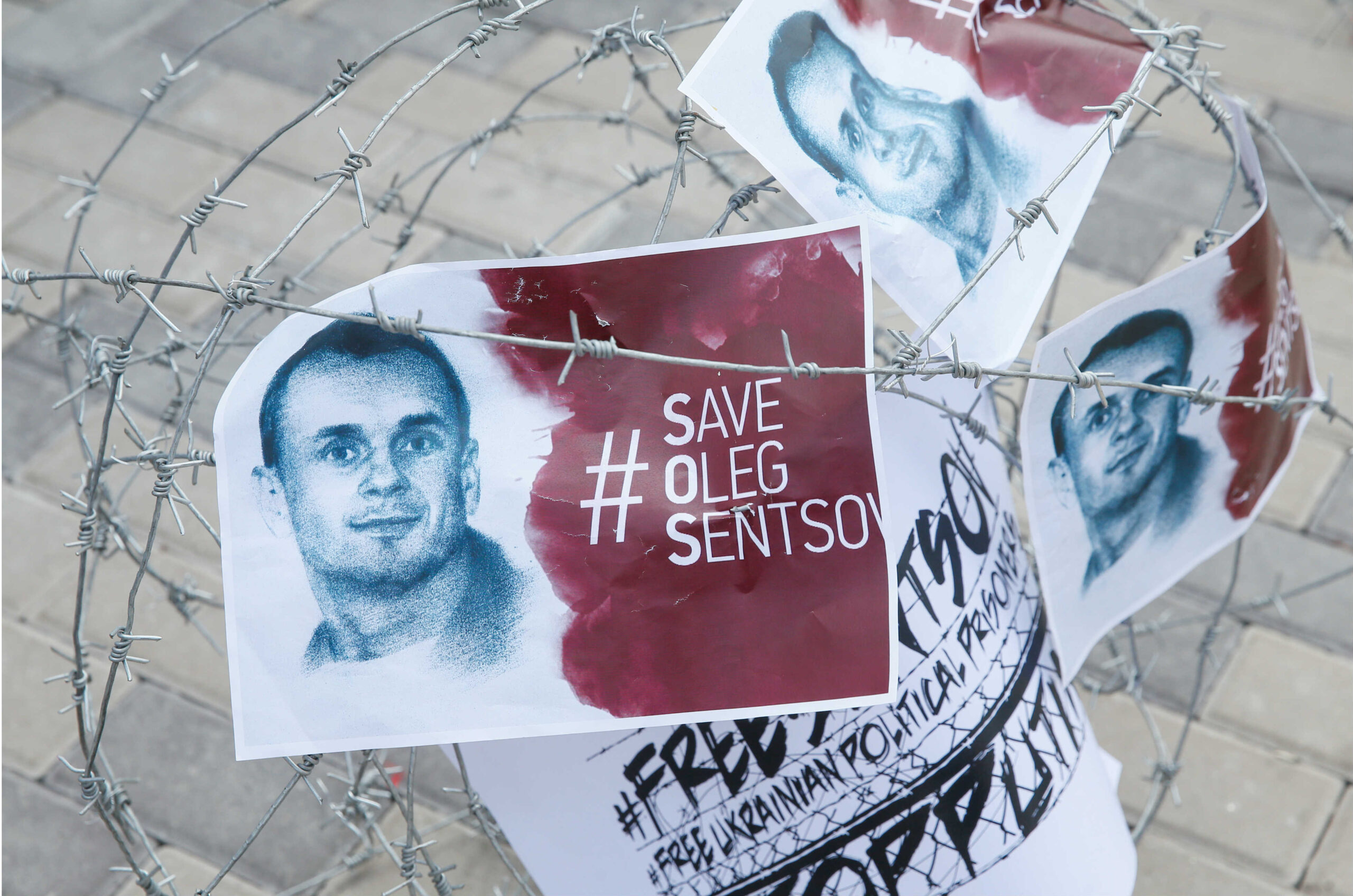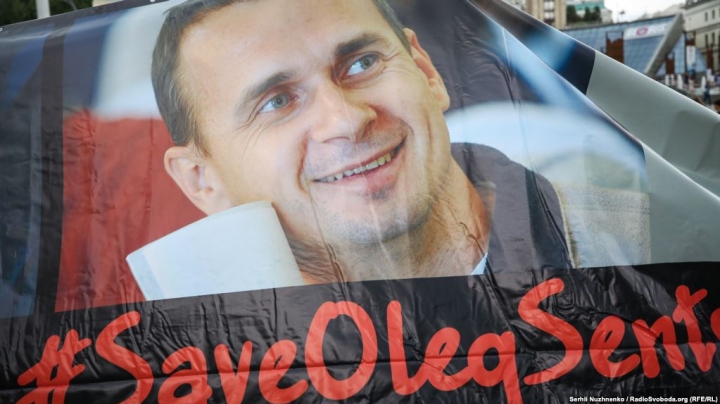Why We Must Speak Out about Oleg Sentsov Now
By Natalia Arno September 11, 2018

By Natalia Arno September 11, 2018

Oleg Sentsov, a Ukrainian filmmaker imprisoned by Russian forces in 2014, is on the verge of death. More than one hundred days ago, he began a hunger strike to demand that Russian President Vladimir Putin free sixty‑four Ukrainian political prisoners being held in Russia. Since then, Sentsov has lost almost 70 pounds and suffered cardiac complications. In early August, he confided to his lawyer that “the end was near” and this week he told his cousin that his limbs are going numb. Unless the international community takes urgent action, his uncompromising commitment to freedom will soon kill him.
Policy makers and human rights activists face an all‑too-common decision: Do we raise our voices loudly and in unison now, when it can potentially spare one life, or honor yet another opponent of tyranny with a street name following his death? We’ve got enough streets named after dead democrats and courageous freedom fighters. Let’s make an uproar now if only to say we shed a light on those unfairly held in Russia’s modern gulag.
Sentsov’s trouble began soon after Russia illegally annexed Crimea. He was arrested on May 10, 2014, by Russian FSB security forces for peacefully protesting the illegal Russian takeover of Crimea. From his home in the Crimean city of Simferopol, he was jailed and held incommunicado for three weeks. During this time, prison authorities physically abused him, including by suffocation, and threatened him with torture, rape, and murder in an attempt to get him to “confess” to terrorism. The Russian authorities proceeded to strip him of his Ukrainian citizenship—a blatant violation of international law—and tried him in a military tribunal in Moscow as a Russian citizen. Despite a lack of evidence—including from the main witness against him who retracted his testimony after admitting it had been made under torture—Sentsov was convicted of terrorism and sentenced to twenty years in prison.
Sentsov’s case is far from unique. Convicting political opponents on manufactured charges and bogus evidence is one of the hallmarks of Putin’s regime, and there are more than 183 political opponents currently imprisoned in Russia. In an attempt to wear them down, they are regularly subjected to torture; inhumane transport, including month‑long transits in cramped trains with little access to water and sanitation; and imprisonment in “gulag‑like” prison colonies.
So far, Putin has managed to repress dissent, and Sentsov’s ongoing struggle is an attempt to change this. Sentsov hopes to force Putin to answer for the numerous Ukrainian activists he has imprisoned. Selflessly, Sentsov has not even demanded his own release; rather, he will only end the hunger strike if all other Ukrainian political prisoners are released, and he is willing to obtain his own freedom through death should Putin choose to ignore his demands.
Unfortunately, Putin appears ready to let Sentsov die. Perhaps Sentsov’s case is a matter of pride. As a Ukrainian prisoner from Crimea, releasing Sentsov to the Ukrainian authorities might undermine Russia’s claim over Crimea. Or perhaps Putin simply wants to show the world that nothing, not even the death of an innocent man, can make him change.
Whatever the case, we must not let Putin have his way. It is time for the international community to stand in solidarity with all of Russia’s political prisoners and take concerted actions to hold Putin accountable. Sentsov’s life depends on it. If we don’t, it’s a defeat for those who believe in human rights and a victory to those who traffic in tyranny.
As an urgent first step, if Sentsov is to be saved, the world must unequivocally call for his immediate release. As Sentsov’s situation has grown increasingly precarious, a handful of organizations and world leaders, including Amnesty International and French President Emmanuel Macron, have already done so. But to get Putin to listen, we need the United States and other countries and organizations that value democracy and human rights to prioritize Sentsov’s case.
Second, Russia must face serious and tangible consequences. Putin has repeatedly demonstrated that he does not act out of compassion or shame, so we must force him to do what is right. The United States should lead the charge by using all the tools in its arsenal—including significantly expanding sanctions—to force Putin to meet our demands for freedom.
Finally, we must not lose sight of what is at stake. Sentsov may be fighting to free Ukrainian political prisoners specifically, but this fight transcends national boundaries. It is a timeless and universal fight for freedom and justice—the very values that our society is built on. Sentsov has not weeks, but fleeting days left. And if he dies, so does a part of our humanity.
This article originally appeared on the Atlantic Council's website
The main photo: Barbed wire and placards with images of Ukrainian film director Oleg Sentsov are seen after a rally demanding the release of Sentsov, who was jailed on terrorism charges and is currently on hunger strike in Russian jail, in front of the Russian embassy in Kyiv, Ukraine August 21, 2018. REUTERS/Valentyn Ogirenko/File Photo
By Natalia Arno
August 28, 2018
 Article
Article By Maxim Tuula
July 20, 2018
 Article
Article By Alexey Kozlov
June 07, 2018

By Natalia Arno
August 28, 2018
 Article
Article By Maxim Tuula
July 20, 2018
 Article
Article By Alexey Kozlov
June 07, 2018
